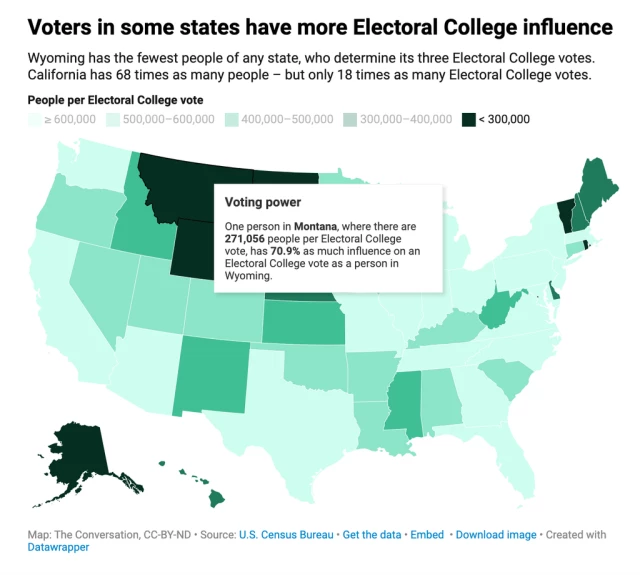The United States is the only democracy in the world where a presidential candidate can get the most votes and still lose the election.
The Founders debated for weeks over how to pick a president, before borrowing the Electoral College concept from Europe, where it had been used to pick the Holy Roman Emperors for hundreds of years.
(This story has a neat graph that shows the voting power of an individual in your state in the electoral college design):
theconversation.com/no-country…
No country still uses an electoral college − except the US
Every other country that used an electoral college has been unsatisfied with the results and chosen another way to pick a leader.The Conversation


Samhain Night
in reply to The Conversation U.S. • • •Wayne is easily amused
in reply to The Conversation U.S. • • •Steve Lindsay
in reply to The Conversation U.S. • • •Canada election 2019: preliminary results for popular vote 2019 | Statista
StatistaNaomi Mittet
in reply to The Conversation U.S. • • •jerrydgj
in reply to The Conversation U.S. • • •Doug Grinbergs
in reply to The Conversation U.S. • • •Simplicator
in reply to The Conversation U.S. • • •Mike LaBonte
in reply to The Conversation U.S. • • •Strange Culprits
in reply to The Conversation U.S. • • •The Mïghty Kräcken
in reply to The Conversation U.S. • • •WhichOne'sPink 🇫🇮
in reply to The Conversation U.S. • • •😆